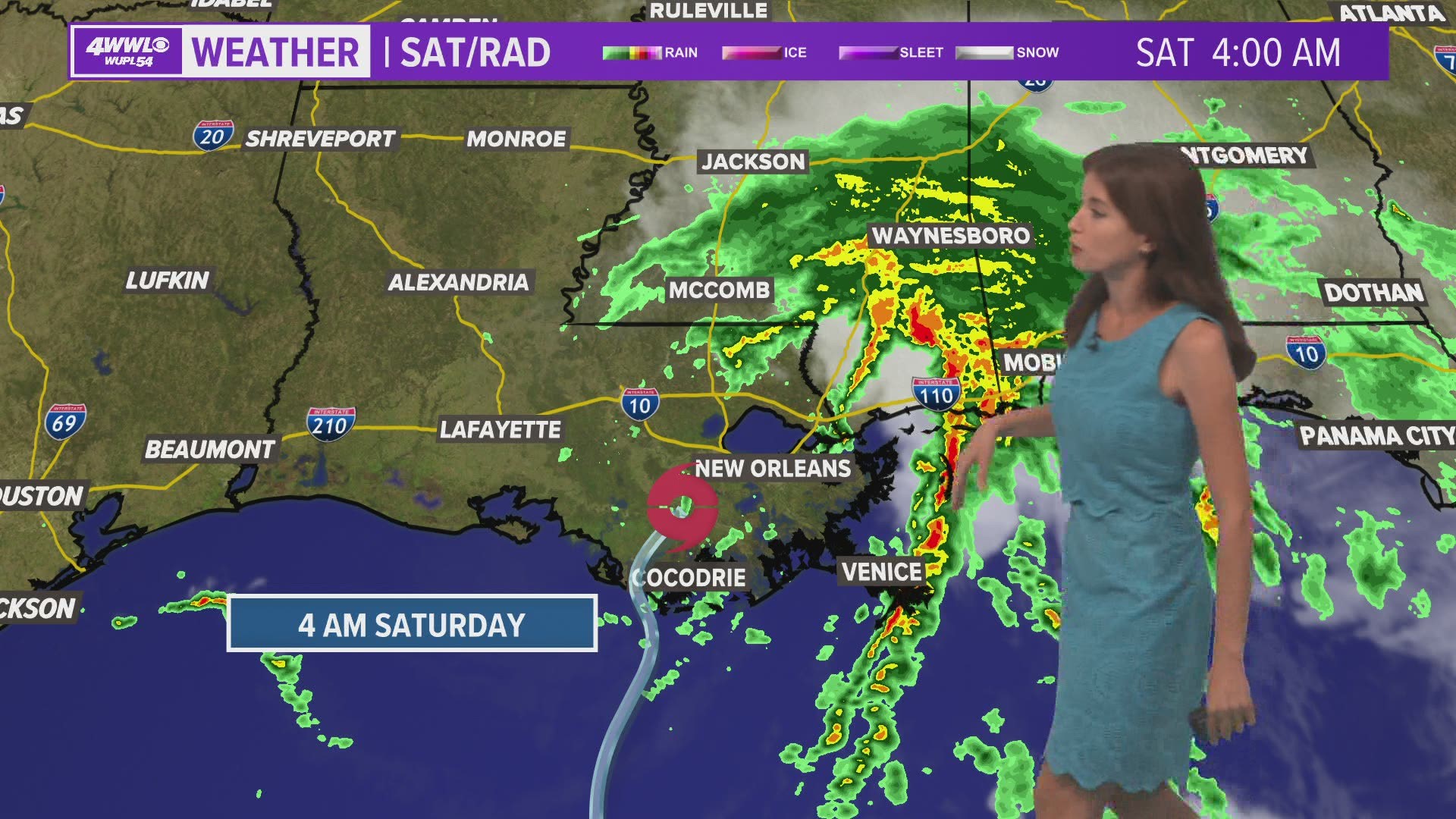NEW ORLEANS — It’s rare for a tropical cyclone to form over land, instead of over warm water which is the fuel for tropical systems. But early Saturday morning, the National Hurricane Center made the decision to name Tropical Storm Claudette after the system's center had already moved inland around Houma, Louisiana.
Throughout Friday and into Saturday morning, the system maintained a messy and disorganized structure with almost no rain on the western/southern sides and a band of heavy rain far from the center - about 100 miles east of the center when the storm was named at 4 a.m. Saturday.
Here is the National Hurricane Center's discussion of why they decided to upgrade the system to a tropical storm:
"The system that we have been tracking for a few days finally has enough of a well-defined center and organized convection to be considered a tropical storm. While the organization is not classical by any means, and there are some hybrid characteristics, the cyclone most resembles a sheared tropical storm, so the system is now Tropical Storm Claudette."
While it is unusual, tropical cyclones have been named overland a few times in the past. The last time it happened in southeast Louisiana was August 1988 with Tropical Storm Beryl. In that case, a depression formed just north of Lake Pontchartrain before the system meandered south and became a tropical storm over water just east of the mouth of the Mississippi River.
In 2016, Tropical Storm Julia was named over Florida, and in 1977 Hurricane Clara started out as a depression over South Carolina.
While this is a rare event, the National Hurricane Center does extensive post-storm reports and occasionally makes changes to things like intensity, landfall position or other aspects of tropical systems. So they could eventually revise the discussion about Claudette's formation. However, post-storm reports usually come out after many months once the National Hurricane Center meteorologists have closely reviewed lots of data, so we probably wouldn't hear about that until next year.

